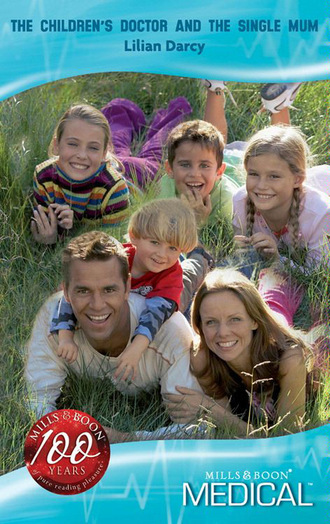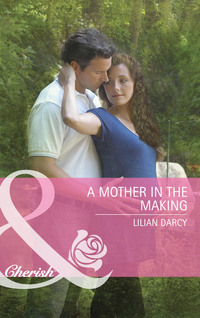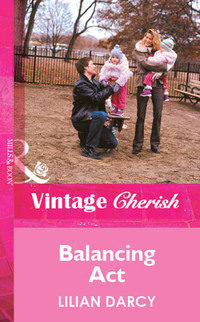
Полная версия
The Children's Doctor and the Single Mum
‘You must have managed a fair bit of practice with some of this stuff over at Royal Victoria,’ he said, curious to know just how lucky he might come to consider himself, professionally, that she belonged to Yarra Hospital now instead.
Beneath the blue halo of her cap, she grinned. ‘They even let us loose on real babies sometimes.’
Laird still hadn’t seen her hair. He had a horrible feeling he might not recognise her if he saw her in another part of the hospital, garbed in street clothes. Her colouring and features were average—Scottish skin, those amazing blue eyes, pretty-ish, from what he could tell, in a nursy kind of way. In his experience, women didn’t go into nursing if they looked like they could be models—which was probably to the benefit of both professions.
Keeping his voice low, he asked, ‘Why did you make the move?’ He waited almost smugly for some line about the fantastic reputation of the NICU at Yarra. He’d felt fortunate to win a position here himself, and intended to bring the profile of the place even higher as he worked his way into a more senior role.
‘It cuts seventeen minutes off my commute,’ she answered at once, without smiling.
He smiled in response, though, and conceded, ‘Question too personal for this time of night? OK. That’s fine.’
‘No, I’m serious.’
‘You changed hospitals to cut seventeen minutes off your commute?’
‘Seventeen minutes each way, four or five days a week, that’s more than two hours. You can get a lot done in two hours.’
‘I suppose you can. A couple of routine Caesareans, a good session at the gym, a DVD with a glass of wine.’
‘The vacuuming,’ she retorted. ‘Two casseroles ready to freeze. Three parent-teacher conferences and a stock-up at the supermarket. Nuclear disarmament, that could be doable in two hours, I reckon, if I really pushed. At least, it sounds easier to my ears than getting the garden in shape. And then there’s…sleep.’ She uttered the word with longing.
He laughed. ‘Those things, too.’ He belatedly registered the fact that she seemed to have three children and realised he was in the presence of a genuine dynamo—one of those women who’d explored the wild island of parenthood and survived intact.
Then one of Max’s monitor alarms went off, they both took it as a signal to get back to work, and he didn’t think anything more about her for the rest of the night.
‘Mum-mmee-ee!’ All three triplets cannoned into Tammy within three seconds of her arrival in the kitchen via the back door. Having braced herself for the onslaught, she withstood it, bent down, hugged three four-year-old bodies—two sturdy, one still a little smaller than his sisters, as he probably would be until puberty.
‘Leave Mummy alone, guys,’ said Tammy’s mother, who wasn’t yet dressed, just wrapped in a towelling robe over a floaty nightgown and boat-like slippers. What time had the kids woken her up? The crack of dawn, as usual?
‘It’s fine,’ Tammy told her. ‘I have seventeen extra minutes now, remember? Nineteen, if I get a really good run and hit all the green lights.’ She’d resisted leaving Royal Victoria for a long time, reluctant to lose the familiarity and the friendships, but the shorter commute had won out in the end.
‘Well, spend eight of them with the kids and the other nine on extra sleep,’ her mother drawled, as if she shared Dr Laird Burchell’s opinion of the value of seventeen minutes. She should know better! ‘You’re back there at three, aren’t you?’
‘And an eight-till-eight on Saturday. But then I’m off until Tuesday night.’ Tammy had been very firm with the hospital about not working daytime shifts on weekends.
Mum could come in from her garden flat at the back of the house and handle the kids when they were at school and pre-school during the day, or when they were asleep at night, but it wasn’t fair to ask her to babysit regularly on weekends in daylight hours when they were all home or shuttling around to soccer and swimming.
Not when there were five of them.
Not when the army had transferred Tom to Darwin two years ago, giving him the excuse he’d been looking for, for the past five years, to cut himself off from their lives. He hadn’t seen the kids since the Christmas before last.
The money he sent as part of their divorce settlement was just regular enough and just generous enough to keep Tammy from taking him to court, but was nowhere near enough to cover what five children and a hefty mortgage really cost. With a generous gift from Mum, she’d managed to buy out his share of the house, but had nothing in savings now. They lived from pay cheque to pay cheque.
So, yes, physically, Tom had been gone from their day-to-day lives for two years. Emotionally, he had been absent since the day he and Tammy had found out that her planned third pregnancy was going to deliver three babies instead of one, following the births of Sarah and Lachlan who had then been aged four and two.
She and Tom had been formally divorced for three years.
Sometimes she still found it hard to understand how he could have done it, how his panic at the prospect of triplets could have brought such an ugly, self-absorbed side of him to the surface. How much had he simply been looking for a good excuse to bail out? How long would their marriage have survived even without the triplets?
Don’t go there, Tammy, she told herself. Not when you’re this tired.
She’d been angry and deeply wounded by his betrayal for a long time. Mostly, she was over it now. Sometimes, though, on a bad day—on the way home from work at close to midnight or when the money was stretched so tight she expected something to snap—yes, she took a backward step and got angry again. It was like what parents said about the NICU. A roller-coaster ride. Three steps forward, two steps back.
‘How was work, anyway? An easy night, I hope,’ Mum asked.
‘I wouldn’t recognise an easy night in the NICU if it jumped up and bit me. But we managed to get two fragile little twins through their first six hours. I’ll have my fingers crossed for them all day.’
‘You won’t,’ Mum retorted. ‘Because you’ll be asleep.’
‘True.’ She yawned, aching for her bed the way some women ached for a lover.
Her mother decreed, ‘Someone else can cross their fingers.’
‘Sounds good.’ She thought about Dr Burchell again. He might cross his. He seemed to care. Well, neonatology wasn’t a field you went into if you didn’t.
She had a sudden flashback to the time he and she had spent getting Max stable in the delivery room, bending their heads over the little boy, reaching past each other. He’d looked at the baby with a kind of intensity that had almost generated heat, and there hadn’t been a moment where she could have doubted his skill or his attitude.
‘Going to eat something before you sleep?’ Mum asked.
‘Nah. Not hungry.’
‘You’ll fade away to a shadow.’
‘Yeah, right!’ She patted her backside, principal storage facility for the extra kilos she’d packed on over the past few years. They were her best friends, those kilos. They wouldn’t let her down. They would be there for her through life’s ups and downs, solid and real, keeping her very, very safe. After all, what man would even think of getting close to a woman with five kids, no money and this much padding on her frame?
I am not on the market, the extra kilos said on her behalf, which meant she could focus on what really counted.
Making ends meet.
Being a good mother.
Getting enough sleep.
‘I’ll just make their lunches, then head upstairs.’ She yawned, wondering what was still in stock on a Friday, the day before shopping day. Any biscuits left? Any fruit? Her stomach rebelled. She was way too tired to think about food.
‘I’ve already done their lunches.’
That brought her close to tears. ‘Oh, lord, Mum, what would I do without you?’ They hugged each other, and Tammy could almost feel through Mum’s body heat all the things she wasn’t letting herself say about Tom.
Ten minutes later, with the alarm set for two-twenty that afternoon when a couple of weeks ago she’d had to set it for two o’clock, she sank into sleep.
CHAPTER TWO
LAIRD WAS late getting to Tarsha’s elegant townhouse in Kew to pick her up for their Friday night date.
Little Adam Parry had given them a scare this evening. Alarms going off. The wrong numbers rising or dropping on his monitors. Laird had had to spend an extra twenty minutes at the hospital on his way to his evening out, adjusting medication doses and ventilator settings, and answering several anguished questions from the parents.
Chris and Fran Parry had wanted the kind of certainty that he couldn’t truthfully give them, and yet it would be disastrous if they sank into hopelessness. There were some parents who detached themselves from their baby emotionally if they thought it wasn’t going to live, in a desperate kind of defence mechanism that they didn’t consciously choose. But premature babies needed their parents. The sound of a mother’s soothing voice could raise their oxygen saturation when it dropped in the presence of medical staff. Even when they were so tiny, they seemed to know when they were loved, and to respond.
He’d found himself looking for the Tammy nurse several times during his visit to the unit, as if she might have been able to bail him out with the Parrys, phrase things better than he could himself, help the couple find the right balance between love and hope and realism. Someone had mentioned her name, but apparently she was on her break and he’d left again before she returned.
Tarsha greeted him at her townhouse door in a cloud of expensive perfume, her model’s figure immaculately clad and her flawless face beautifully made up as always, to make the most of her dark hair and brown eyes, but when he leaned forward to kiss her—cheek or mouth, he hadn’t made up his mind—she pulled back and he saw that she was tense.
‘What’s up?’ he asked her.
‘Nothing…’
‘Come on, Tarsh.’
‘We’ll talk about it at the restaurant.’
‘We’ll talk about it now.’
‘Must we?’
‘Yes. Have some pity for a weary man with fraying patience and don’t play games.’
‘All right…all right.’ She sighed, and tucked in the corners of her mouth. ‘You win.’
They’d known each other for a long time as their parents moved in the same well-heeled social circles and were friends. They had first gone out together more than twelve years ago while Laird had been a medical student, but then Tarsha had chosen the lure of modelling in Europe and they’d called it quits, with no hard feelings on either side. There’d always been something missing at heart.
‘What is it, Laird?’ Tarsha had said once, back then. ‘It’s like a hundred-dollar bill that you know is a forgery. It looks right, but something still tells you it’s not.’
Maybe they just hadn’t been ready at that point. Too young. Too ambitious. Not enough time for each other.
A few months ago, after a successful modelling career, followed by several years spent working in the field of public relations in Paris, Tarsha had come home without the intended notch of a fabulous marriage on her belt. She was now in the process of starting her own modelling agency in Melbourne, which involved a lot of networking and schmoozing, as well as getting the right faces and bodies in her stable.
Laird had the vague idea that something had turned sour for Tarsha in Europe—that she was running away from a professional or personal disaster—but so far she hadn’t shared the details with him.
Some conniving between their two mothers several weeks ago had led to a choreographed cocktail party encounter— ‘You remember Laird, don’t you, darling?’—and Laird had understood at once that he was supposed to pick up again with Tarsha…no, not quite where they’d left off. People changed in twelve years.
Close, though.
The prospect had appealed on some levels. There was something out there that he hadn’t found yet—a core of happiness and stability that he saw in the best couples and that he wanted in his own life. Maybe this time with Tarsha, the timing would be right. It was hard to question a relationship that was so perfect on paper, especially when it had been so neatly deposited in his lap, gift-wrapped.
Before Tarsha’s timely return to southern shores, and after a long and carefully selected series of suitable girl-friends, his mother had asked him in exasperation a couple of times, ‘What are you looking for in a woman, Laird, that you haven’t managed to find yet?’
‘Is that a rhetorical question?’
‘You’re thirty-four!’
He hadn’t attempted to give her a list of attributes, but had half-heartedly tried to come up with a private one for himself.
He couldn’t.
Somebody different. A breath of fresh air.
Not exactly a precise description.
‘I’ll know it when I see it,’ he had predicted to his mother, confident and a bit grumpy.
Suddenly, looking at Tarsha’s set face, he realised that this relationship…this woman…wasn’t it.
It turned out she knew it as well as he did.
‘I’ve realised this isn’t working, Laird,’ she said. ‘Us, I mean.’ And when he was silent for a fraction of a second too long, she went on quickly, ‘To use the old cliché, it’s not you, it’s me. Something happened in Europe. A man. I’m not ready, and you’re not the right person. And you know it, don’t you?’ She gave him a narrow-eyed look, and then she laughed. ‘Hell, you really do know it! I can see the relief in your eyes.’
He couldn’t deny it. ‘I like you very much, Tarsha.’
‘And I like you.’ But she hadn’t yet relaxed. He wanted to put an arm around her purely for reassurance, didn’t quite know why she was turning this into a problem, as it was clear neither of them had any regrets.
‘So we’re fine, aren’t we?’ he said gently. ‘We’ve both realised. We both feel the same. We can forget dinner tonight, if you want.’
‘No, you see, that’s what I don’t want.’ She took a deep breath, gave a big, fake smile.
‘I’m sorry?’
‘The it’s-not-you-it’s-me thing was the easy part.’
‘Pretend I’m not getting this, and explain.’
‘Laird…look at me!’ Were those tears she was blinking back? ‘I’m not the kind of woman who goes out with her single women friends in a big group and doesn’t care what anybody thinks. I want to be honest with you about this. Pathetic and needy, but honest. Can we still go out sometimes? Would you be the man on my arm when I need one? I’m setting up this agency, I have to look good, I have to be seen. That’s all. I just need a part-time, very presentable man.’
She spread her hands, did that dazzling pretend smile again and he realised how vulnerable she was beneath the glamorous façade, thanks to this unknown man in Europe. He realised, too, how little value beauty could have to a woman in the wrong circumstances.
He told her sincerely, ‘Sure, Tarsh, I can be your presentable man, occasionally. I don’t see anything getting in the way.’
She nodded and kissed him quickly, not on the mouth, but close. ‘Good. And if I haven’t made this clear, sex is not included in the deal. I—I…’ Still smiling, she blinked back more tears. ‘Somehow—and, please, don’t grill me on the details here—I turn out to be a lot more monogamous than I would have thought.’
And that was that.
At the restaurant Laird and Tarsha had to wait for their table, wait for the menu, wait to be asked for their order and then wait for it to arrive. Neither of them seemed to have much to say, having dealt with the principal matter of interest between them before they had even left her house.
Laird fought hunger, irritability and fatigue, and Tarsha finally appealed to him, ‘Talk to me, Laird! Talk shop, if you want, rather than the two of us sitting here like this. It’s what you’re thinking about, isn’t it?’
He admitted that it was. ‘We have some very fragile babies in the unit at the moment. Delivered two of them last night, and we were short-staffed. Fortunately, we had a terrific new nurse. I don’t think both babies would have made it out of the delivery suite without her. She was fabulous. Down-to-earth, unflappable, knew her stuff inside out.’
‘Pretty?’
He thought for a moment, and remembered the shiny forehead and the unflattering angle of Tammy Prunty’s disposable cap. ‘Um, I don’t think so. Not really.’
Tarsha’s attention had wandered. ‘Is this ours?’ she murmured, watching a waiter with laden hands. ‘No, it’s not…’
Laird was still thinking about the fact that he’d just completely slammed the Tammy nurse in the looks department. He felt guilty and impatient with himself, which was ridiculous. ‘Although I never saw her hair,’ he said, wondering about it, remembering the blue of her eyes. ‘I have an idea she’ll be a redhead, though.’
‘She will be?’
‘When I see her without her cap.’ He looked forward to resolving the question, for some reason.
Tarsha fixed him with a suspicious look that he didn’t understand, and then their waiter came towards them at last.
* * *
‘And it was green, and we thought, Good grief, what is this? I mean, neon green newborn milk curds. The intern went pale. Poor thing, it was his second day, he didn’t have a clue. He’s about to call the senior surgeon, who has no patience with new doctors.’
‘None of them do!’
‘And then we see an empty bottle on the floor, and it’s not from the baby at all. His big brother had one of those athletic power drinks, those “-ade” ones, and he’d spilled some of it, right on top of where the baby had spat up, only he was too scared to say.’
There was a chorus of laughter, cutting off a little too quickly when the three women in the staff break room saw Laird.
Red, he thought.
Just as he’d suspected from her colouring. Tammy Prunty had a magnificent head of gleaming bright carroty, goldy, coppery, autumn-leafy hair with a natural, untamed wave that would absolutely require full confinement beneath a cap any time she was anywhere near surgery or vulnerable babies. No wonder he hadn’t been able to glimpse it before.
She smiled at him, her face receptive, friendly and polite and her blue eyes still alive from her recent laughter. The eyes and the hair went together like burnished gold and lapis lazuli in a piece of Ancient Egyptian jewellery, and the smile was so warm and dazzling it rendered him temporarily without words.
He’d heard her voice, coming past the break room, and had decided to settle the question of her hair now, at the first opportunity, because it had been nagging at him after he and Tarsha had talked about it on Friday night. He hadn’t expected to feel so awkward, standing in the break room doorway the following evening.
The three nurses waited for him to get to the point. What did he want them to do? Which of them did he want to yell at? What information was he seeking?
‘Just checking something,’ he murmured vaguely, and left again, unsettled.
He heard the chorus of female voices pick up before he reached the end of the corridor, and had a weird desire to go back, make himself a coffee and sit down to join in. He would sit across the table from Tammy, so he could try to work out just what it was that he found so appealing about her colouring when he hadn’t thought her pretty before.
He resisted the impulse, squared his shoulders and got on with his life instead.
Back in the NICU, the Parry babies had lived through their first two days but still had a long way to go. No one was even thinking about discharge yet. And they had a new thirty-four-weeker, Cameron Thornton, delivered via Caesarean and now five days old.
He wasn’t on a ventilator and was only here because he had a bright, vocal mother and because, despite the recent scarcity of beds, several babies had been upgraded, transferred or discharged since Thursday night so the NICU now had two places spare, while the high dependency unit and special care unit were overflowing.
‘Something’s not right,’ the mother had been saying since a few hours after his birth, even though he was breathing and feeding and doing all the right things.
Many six-week prems required almost no medical intervention and could be discharged within days of birth. According to Mrs Thornton’s dates, he should have been a thirty-six weeker but a range of well-defined developmental signs had led Dr Lutze, who’d been on hand at the birth, to lower the estimate to thirty-four weeks or even a few days less, and Mrs Thornton had admitted she might have got it wrong.
She didn’t think she was wrong about her current sense of concern, however. ‘He’s my sixth child. A mother knows.’
And sometimes they did.
This mother, Laird wasn’t sure about. The baby’s dad, Alan Thornton, was a senior administrator in the Faculty of Medicine at Yarra University, which meant he had contacts and influence. The mother was supposed to go home tomorrow, and Laird wondered if, with such a large family awaiting her attention, she simply wanted another night alone with her baby, or more time to rest in the relatively cushy environment of her private hospital room.
She did seem genuinely anxious, however. She was hovering over the baby, watching every change in his breathing and in the numbers on his monitor. Alison Vitelli, the mother of the triplets born at twenty-nine weeks, gave her a couple of the same resentful looks she’d given the other mother in here on Thursday night.
It had begun to look as if one of Alison’s babies wouldn’t make it, although two of them were doing better now. The smallest at birth, little Riley, had a whole raft of cascading problems, including a serious bleed in the brain, and Alison was again finding it very hard to deal with a mother whose child seemed barely unwell at all.
This mother wasn’t making a song and dance to earn Mrs Vitelli’s disapproval, however. She sat quietly, very sensitive to the presence of other babies and parents around her.
‘How’s he doing, Mrs Thornton?’ Laird asked her in a murmur.
‘His temp is up—37.8 degrees.’
A tiny bit higher than normal, Laird registered, but a baby wasn’t considered febrile until its temp went over 38. The little guy still had nasal oxygen prongs for several hours each day, but the rate had been turned right down. They’d increased his periods of weaning from the machine, and he should be safely on room air by tomorrow.
Laird felt somewhat annoyed with Melanie Thornton, even though he was possibly being unfair. ‘A mother knows’, plus a tiny elevation in temperature, on top of a low-risk level of prematurity. How could he justify a barrage of expensive or time-consuming tests on that basis? If the NICU hadn’t been, briefly and unusually, the only place with a spare newborn bed, this baby wouldn’t even be here at all.
‘I think you’re worrying too much,’ he told her, managing to keep his voice gentle.
‘He’s my sixth child.’
‘So you’ve said.’
‘Don’t you think I’d be worrying less after five babies?’
‘Not if this is your first premmie. Of course it must feel different. He’s smaller, his skin is thinner, his lungs are less developed, he tires more easily when he tries to feed, all sorts of things.’
‘It’s more than that,’ she insisted. ‘I just feel it.’
Tammy Prunty was back from her break and ready to swap places with Eleanor Liu, who’d briefly taken over care of the Parry twins. Laird experienced an exaggerated wash of relief when he saw her coming, her hair now back under the unflattering blue pancake of its cap, which as usual made the smooth skin of her forehead look too shiny and white. He intercepted her before she reached Eleanor, and lowered his voice.
‘Listen, can you do something about the Thornton baby? Or the Thornton mum, really. She’s bugging me with her earth-mother intuition, and I’m really not convinced anything is wrong.’
‘Do something?’ She made a face. Her mouth went crooked, which drew Laird’s attention to a detail he hadn’t noticed until now. She had the most beautifully shaped lips, soft and smooth and pink.












